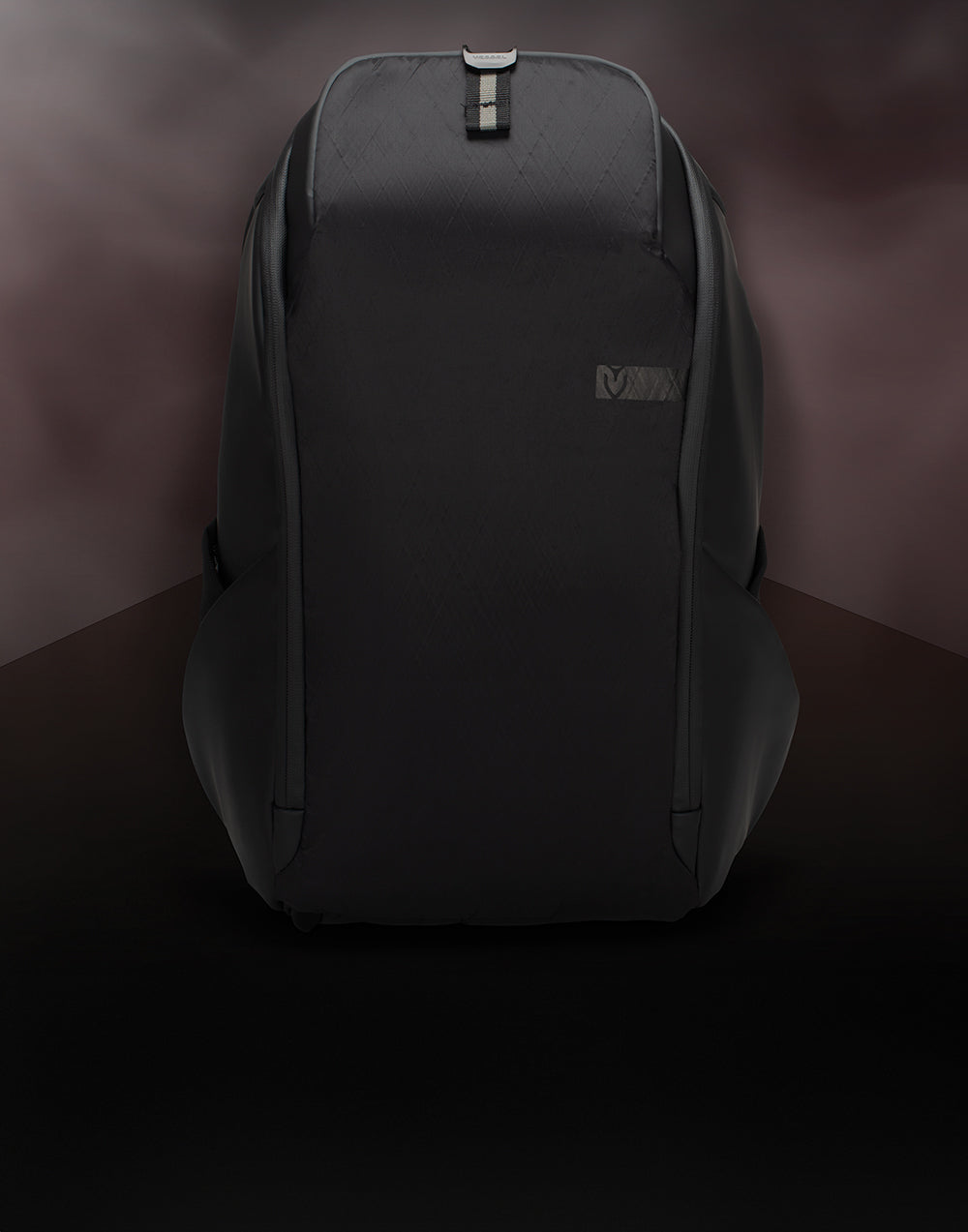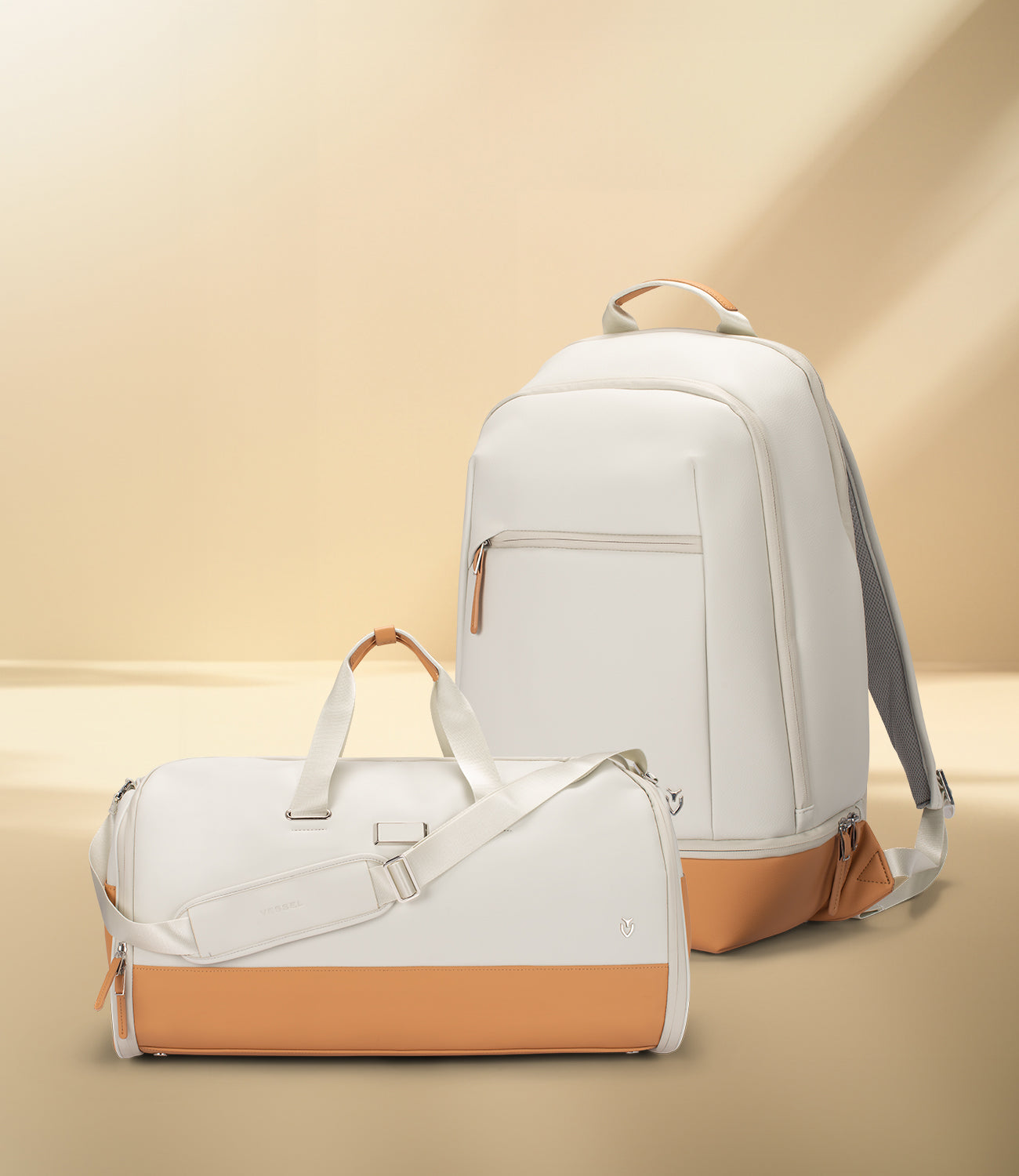Travel 2020 | 7 min
New travel regulations and guidelines are being updated every single day in order to adapt to the current global pandemic. This includes new protocols, policies, lockdown restrictions, and more, for both foreign and domestic travel. As of now, many international borders still remain closed to nonessential travel, but certain states throughout the U.S. are gradually opening up once again. With summer coming to an end, and Labor Day weekend coming up, we know that many Americans are eager to enjoy a bit of sun before the seasons change. We’re taking a look at what kinds of travel (if any) are safe, and how you can make your trips safer.

[Product Details: Signature 2.0 Boston SE in Black Pebbled and Rose Gold]
KNOW THE SAFETY BASICS (CDC Guidelines)
- Touching objects isn’t the main way of contracting COVID-19, but germs and bacteria are still easily spread this way
- It’s most easily spread between close contact with other people so it’s recommended to maintain a 6-foot (or more) distance from people you don’t live with
- Practice washing your hands often and thoroughly to reduce the spread of harmful bacteria
- Frequently disinfect commonly-touched surfaces like: phones, door knobs, handles, car interiors, and anything in public spaces
- Avoid touching your face
- Always cough/sneeze into your elbow
- Wearing a face covering minimizes passing the virus or other illnesses to other people
GENERAL CONSIDERATIONS FOR TRAVEL
Before planning your getaway, evaluate your personal situation.
-Is COVID-19 spreading where you plan to go?
-Do you live with, or plan to travel with someone who would be considered “high-risk” for developing COVID-19?
-What are the post-travel quarantine rules for your state, city, and employer?
-Will there be any hotels, attractions, restaurants, or other activities open when you get there?
If you feel confident that you’re not putting you or your household at risk, then figuring out the best mode of transportation is up next.
Should I travel by airplane?

[Product Details: Signature Luggage in Navy]
Safety Practices
Although travel has slowed since March, there’s been a recent uptick in plane passengers since airlines and TSA have improved health protocols. Enhanced precautions like: putting personal items into carry-on bags instead of plastic bins, staying 6-feet apart, and wearing masks, have been enforced for air travelers. Additionally, TSA officers and airport officials are now required to wear masks and change gloves after every passenger pat-down. They are also following CDC guidelines for sanitizing all public surfaces like: check-in kiosks, tickets counters, gate seating, and other frequently-touched areas. Passengers are now allowed to bring liquid hand sanitizer in containers up to 12 ounces in carry-on bags, compared to the previously 3-oz restriction. Passengers are also advised to carry their own alcohol cleansing wipes to disinfect any surfaces they come in contact with.
Logistics
Passengers can board flights with driver’s licenses that have expired beginning March 1, 2020. These are acceptable to use at checkpoints for one year after the expiration date, plus 60 days after the COVID-19 National Emergency. This also means that U.S. citizens now have until October 1, 2021 to obtain a security-enhanced Real ID that will be needed to get through airport security. These deadlines and expiry dates have been accommodated for due to COVID-19’s impact.
Once you board the plane, you’ll still be required to wear a mask unless you’re eating or drinking. Most airlines will ensure that all seats and surfaces are sprayed down with disinfectant between flights, and many try to keep the middle seats open to provide more distance between passengers. However, due to the limited number of flights available, this may not always be possible.
It’s also important to consider that each state will have their own requirements for out-of-state travelers to self-quarantine after arrival. This will vary, so be sure to read ongoing news for your intended location.
Should you need to cancel your flight for any reason, many airlines are temporarily adjusting their change/cancellation penalties. They are also working to promote future bookings by allowing no-fee changes and cancellations, and very, very steep discounts. However, it’s suggested to get these updates from your preferred airline just in case things change.
- Alaska Airlines: tickets bought between Feb. 27-Sept. 8, 2020 for travel on or before June 30, 2021 can be rescheduled (now or later) within that same time period. If a flight is canceled, passengers will be scheduled for the next available flight. If the change is more than an hour from the original flight, passengers can reschedule or cancel and receive a credit or refund (as long as you cancel before the airline does)
- American Airlines: New tickets booked by Sept. 8, 2020 will have change fees waived for future travel. All change fees for travel through Sept. 30 are waived (though customers must pay the fare difference if the new flight is more expensive) Customers who cancel can apply a credit toward a future flight completed by Dec. 31, 2021.
- British Airways (an AARP member-benefit provider): No change fee for bookings made from March 3 through Aug. 31, 2020. For trips that are due to have been completed by April 30, 2021, customers will need to pay any fare differences. Travelers who choose to cancel will receive a voucher toward a future flight through April 30, 2022.
- Delta: No change fees for flights purchased through Aug. 31, 2020-- rebooking is allowed up to Sept. 30, 2022. Tickets purchased between March 1 and Aug. 31, 2020, can be altered without a change fee; a year from purchase date.
- JetBlue Airways: Suspending cancellation and change fees on new bookings made through Sept. 8 for future travel.
- Southwest Airlines: Allowing passengers who cancel (at least 10 minutes before departure) to rebook within the next year or, in some cases, later. The airline has extended the expiration date of some travel credits. Note that fare differences may apply.
- Spirit Airlines: waiving change fees for flights booked by Aug. 31. For canceled flights, a full purchase price reservations will be credited instantly.
- United Airlines: No change fees for tickets booked through Aug. 31-- travelers can apply the funds (now or later) to a flight of equal or lesser value for travel up to 12 months from the original ticket issue date. Tickets issued March 3 through March 31, 2020, can be changed without fees, to a flight of equal or lesser values for travel up to 24 months from the original ticket issue date.
[Be aware that if an airline cancels or significantly delays your flight, you are entitled to a refund, as mandated by the U.S. Department of Transportation]
Aside from abiding TSA and safety protocols, you’ll still have to follow normal airline regulations. So, if you plan to travel by plane make sure you’re well-prepared for your destination and the process in getting there.
Should I travel by train?

[Product Details: Signature 2.0 Plus Backpack in Tech Black]
Safety Practices
Like any public transportation, there will be moments where you’re passing by people in close quarters. It will be challenging to distance yourself from other travelers, so you should be mindful to practice the CDC’s guidelines. Shorter train rides may be safer than longer trips, due to the fact that you won’t be confined with several others for longer than recommended. However, passengers are required to wear facial coverings at the station and aboard the train (unless in a private room), so exposure is minimized. (See Amtrak safety procedures here).
Although many train services are sanitizing their seats and handrails, it’s still recommended to bring your hand sanitizer and alcohol wipes for your train travels. If you plan for longer trips, note that you will most likely need to stay in an overnight train suite. The rooms are cleaned to a high standard, but make sure you are comfortable with the cleanliness overall.
Logistics
Many Amtrak routes are operating on a reduced schedule. Be sure to plan the dates and times in which you’d be departing and arriving, because you may not be able to quickly hop on a train as you would have pre-COVID.
For Amtrak reservations made before August 31st, 2020, you can make changes online. But if you need to cancel your reservation, you’ll have to call them directly.
Should I visit a national park?

[Product Details: Signature 2.0 Lite Backpack in Navy/Pebbled Black]
Visiting a National Park would probably be one of the safer ways to get out and travel. This is considering that you will only be traveling with members of your household or those that have been tested for the virus and its antibodies. It’s important to still keep in mind that you should avoid close contact and large groups. You should also check the National Park Service’s find-a-park website to figure out if it’s open or partially open because nearby restaurants, rest stops, and food services may have adjusted hours. There also may be limited visitors or mask protocols to abide by so be aware before you hit the road!
Should I stay on the coast?

[Product Details: Signature 2.0 Plus Backpack in Tech Black + Signature Luggage in Black]
This is a great option if you can stay away from others and you’re okay with obeying certain beach closure guidelines. COVID-19 isn’t lurking in the waters, but these temporary closures are to discourage large groups and parties. In addition to the sunscreen and suntan lotions, be sure to pack your hand sanitizer. Although many hotels and rentals (like Airbnb) are following the WHO’s advice, it’s better to be proactive and preventative.
You also don’t know when someone has last been in the room, or when it was cleaned exactly. It’s possible for the virus to live on surfaces for 2-3 days and up to 3 hours in the air, so these hospitalities have been enacting a 24- to 72- vacancy period between guests. This helps to ensure that the coronavirus isn’t left in the air or on surfaces.
For anyone looking to book a cruise, note that the CDC currently has a “no-sail” order for cruises, effective until September 30th. This may even be renewed if circumstances don’t get better by then.
Should I stay in a hotel?

[Product Details: Signature 2.0 Tote in Rose Gold + Signature 2.0 Luggage in Rose Gold]
Like all other travel challenges, ask yourself if you’re able to avoid contact with others, and if you trust that public spaces are being thoroughly cleaned. It’s recommended to check out how a hotel is responding to COVID-19 and make sure that you are comfortable with their safety measures. Many hotels are giving their employees PPE and abiding by the American Hotel and Lodging Association’s new Safe Stay guidelines, so they can ensure the most comfortable and stress-free experience. They are making changes like installing plexiglass at reception counters, requiring masks in lobbies, providing online check-in options, and allowing guests to use their phone as their room keys. Hotels with pools and spas are limiting pool capacity and may even require you to sign up for time slots. This is one again to promote distancing and reduce your exposure to other people. Hotels, motels, and rentals are also loosening their cancellation and change policies, so be sure to ask about this before booking a room.
Also to keep in mind:
- If you’re headed on a road trip, you won’t always be able to stop and use public services or visit restaurants at any hour of the day. It’s important to know which cities have stricter lockdowns (if any at all)
- Public restrooms won’t always be properly disinfected, so treat every surface as if it’s contaminated. Once again… keep that hand sanitizer within reach, and wash your hands thoroughly!







Leave a comment
This site is protected by reCAPTCHA and the Google Privacy Policy and Terms of Service apply.